Last week, I had the chance to interview one of the titans of the games media industry, Colin Moriarty. Colin was Senior Editor at IGN, a co-founder of Kinda Funny, and now serves as the founder of his own independent video and podcast franchise, Colin’s Last Stand. Colin, alongside fellow industry legend Greg Miller, created IGN’s Podcast Beyond [editor’s note: Colin joined Podcast Beyond shortly after its inception] and Kinda Funny’s PS I Love You XOXO, the two largest Playstation-based podcasts to exist.
As a teenager, I viewed Colin and Greg as legends (and if we’re being embarassingly honest, I sort of still do). As two of the most prominent faces of IGN, the games media website, they stood out as the ideal of the career I aspired to have. So for the first installment in MonsterVine’s “Legends of the Industry” series, I couldn’t think of a better guest than one Colin Moriarty.
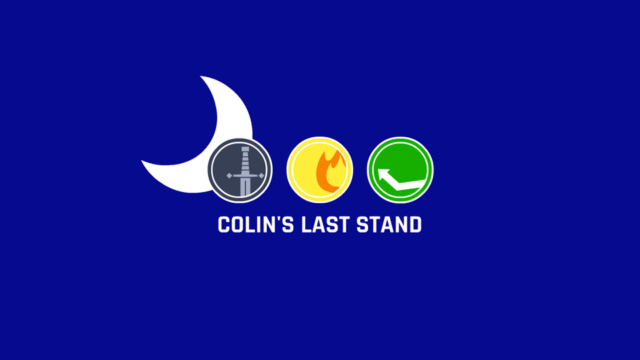
How are you today Colin?
Hangin’ in there! Really tired, I sleep like four hours a night [laughs], there’s always something to do. How are you?
Oh whoa, thanks for asking! I’m doing well. I definitely feel you on the four hours of sleep thing. Always nice and tired. [Laughs] Alright, so for the uninitiated, who are you?
My name is Colin Moriarty. I’m 33 years old, and I was born and raised in Long Island, New York. People mostly know me for video game stuff. I was a freelancer and intern at IGN from 18 to 22, full-time at IGN from 22 until 30, I left when I was 30 to found Kinda Funny, and I left Kinda Funny last year to found Colin’s Last Stand. So I’ve just kind of been in this internet ecosystem for a while now, doing videos and podcasts. I used to write a lot, but I don’t really do that much anymore. I’m also known for doing political commentary, so a weird fusion. Though it’s not as weird as people think, as there’s quite a lot of crossover between game enthusiasts and political enthusiasts.
And how did you get your start in game media?
In the 90’s when I was in high school, I wrote for some fan sites, which isn’t really a thing anymore. Then I wrote for GameFAQs starting in tenth grade. I would write FAQs for older NES games in my free time, then in 2002 when I was 17 and about to start college, IGN reached out to me and asked me to write strategy guides for them. So I did that, and I was pretty prolific at it and had a good work output. Then the next year in 2003, I interned with them for a bit, then in 2004 I interned for a full summer, all while going to college in Boston. Then when I graduated and was about to start grad school, IGN offered me a job. So I moved to San Francisco and did that from 2007 to 2014. So that’s kind of how I got started, and the momentum that took me to where I am now.
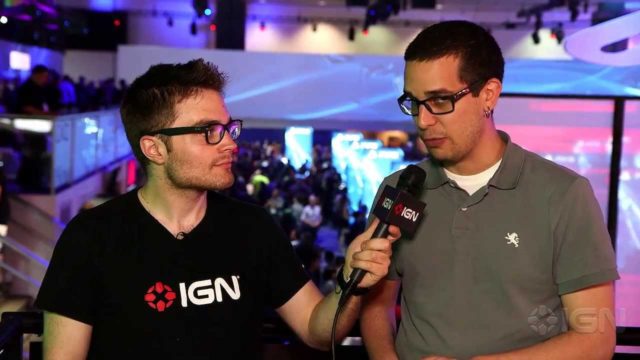
It’s interesting to hear you entered the industry through guides, since that’s a way in that isn’t really around as much now. Video guides seem easier for someone to make, so conventional written guides seem to be less prominent. Would you say that’s a fair assessment?
For sure. It’s funny because I get frustrated sometimes from the lack of text guides since they’re just easier to use. I do disagree with you in that video guides are probably harder to make. It’s the way people want to absorb that info now that is kind of strange to me, since I don’t know why I’d want to watch someone do what I want to do. I’d rather get a tip in written text so I can find it for myself. I just gave a shoutout on Twitter earlier in the week, since I had God of War for a couple weeks before it came out, and I was stuck on a few collectibles.
Powerpyx and PS4trophies and those guys, they work hard to do what they do, so I respect that. But it’s true, there’s really no entry point anymore for people like me, which is kind of sad. But it was the way I got in, I’ve often said I was good at what I did, but I was also very lucky to be noticed. Any number of scores of people I worked with were all pretty good, I was just the one that was picked out. The strategy guide has changed a great deal from the GameFAQS of the 90’s and the Prima guides and all that.
For sure, really all of games media has changed immensely. From your perspective, what’s the biggest change you’ve seen, and where do you see games media going in the future?
I think it’s kind of similar to what happened with game publishing a few years back, where there was A and AA games, $30 or $40 games, smaller publishers. You know, smaller, viable products that live somewhere in the middle. IGN is going to be fine, I think they’re doing a really great job of adapting the product to modernity as opposed to Polygon and Waypoint and those sites that I don’t think are really long for this world. Mostly I think that’s because someone with a webcam in their bedroom is getting more traffic than these small to mid-tier websites like Polygon, there’s really no competition.
The newer generations of gamers, the older, jaded gamers, and people who just have a distrust for that system, they just don’t really go to those websites like they used to for the reasons they used to. There’s actually a parallel with political coverage in the sense that there’s an almost adversarial relationship between the journalists of some websites and the readership of those websites. I don’t necessarily see that at bigger, mainstream websites like IGN. Like, it seems that half of the people who read Polygon hate the site.
Oh definitely, it’s strange. Whenever they’re on my Twitter timeline, it’s typically as an angry quoted retweet.
And the joke about Polygon when they started, at least in my circles at IGN, was that they weren’t going to last very long, and it’s really a ubiquitous surprise that they’re still going. A lot of that has to do with the Verge being a more successful platform and them being tied to that. But I think that the future is mostly video driven and personality driven, which is something we really tapped into early on at Kinda Funny, and what people like Jim Sterling tapped into early on. I think it’s that people like us realized that outlets needed us more than we really needed them, in a way. That’s not to say that it was easy to leave. While it was easier to leave Kinda Funny than IGN, that’s because leaving IGN was the hardest decision I’ve made in my entire life, and I miss that job often. Not because I necessarily want to go back to that, as I think I’m more successful now, but it was a great way to spend my twenties and I don’t want to disparage the field.
There are still a lot of great sites and people who do great work, like Jason Schreier at Kotaku, who does real journalism. I just feel like YouTube is where the center of gravity is, and podcasting. It’s like what we experienced on GameFAQs back in the late 90’s and early 2000’s in that you didn’t need Brady or Prima to be the gatekeepers of strategy guides. People could just give guides straight to you, which was kind of removing the middle-man. Now the middle man is gaming websites, since you can go on iTunes or YouTube or Twitch to get coverage or to see your favorite gamers, and those guys on YouTube and Twitch are way, way bigger than the people working on these sites. I think that speaks for itself. Like, there’s never going to be another Greg Miller at IGN.
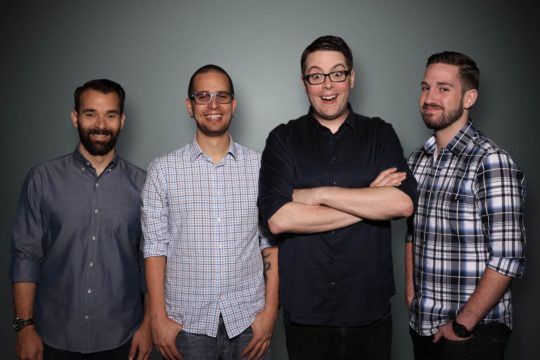
Or another Colin Moriarty!
I was a little more behind, but maybe not! And that’s not necessarily a referendum on the people, it’s a referendum on the content and the way people consume it. I think we were just really lucky to see a little ahead of the curve.
These smaller people don’t get any attention if they tweet out an article, or if they talk about themselves. It’s only when they’re mean-spirited or tearing people down. I’m proud that when I tweet out a video, it can very well get a few thousand likes without that. I’m proud that people are tuning in for the content, because I try to not make it personal. If I have something to say, I’ll say it and show proof. But to me, certain fringes of games media are starting to eat itself. There’s just way too much competition to openly and brazenly engage in that with your audience. With IGN and Kinda Funny and CLS, it’s the relationship with the audience that sustains me, because I feel that people look at me and see that I am an authentic person. And I think that type of authenticity is lacking in certain corners.
Definitely. It’s not really a secret that you’re a controversial figure, but I don’t think anyone could say that you’re not a really genuine guy. I think that’s the most interesting thing about your content, at least to me. Even when I write stuff, there’s a certain layer that’s applied to try to come off in a certain way, but when you put stuff out, I can tell that it’s 100% Colin Moriarty speaking.
Thanks! To me, I feel like I’m not really trying to impress anybody or win any points with anyone. And I don’t mean to tear other people down to get attention. I’ve never had to and I never will. But that’s kind of the modus operandi of a lot of the newer or smaller and more fringe media people because I think they see it kind of slipping through their fingers, so they have to tear others down. I just won’t do it. I’ll defend myself once in a while, but I’m not going to get into the weeds and throw punches at people on Twitter. And that’s kind of what frustrates me about the way people feel about me. And I mean, it’s really a vocal minority of people, since I do get lots of kind words and support. I mean, I have 4,200 people on Patreon paying me for my content, and whether that number fluctuates or not, it’s a real honor to me.
I’m not really even sure, in many ways, how I got this reputation. I think it’s a kind of runaway train thing. Right before I quit, in the weeks before, I was talking to Greg, and I told him “you know, I feel like people like to score points on me, and they do it with impunity”, and he was like “I agree with you, I think you’re right”, and that was a really validating thing. You see a lot of “Colin is this” or “Colin said that”, but they can never point to any evidence. I think a lot of it is that I talk different or sound different, or that I’ve engendered a really loyal audience by treating them like adults and human beings. And that’s something that, when you’re writing and looking for something to be upset about, that’ll probably be pretty upsetting to you when you’re trying your best to get attention for yourself and you realize that it comes through the content and authenticity, not through tearing others down.
And that’s been big to me recently, is really trying to never feed into it. People talk shit about me every day, and people will e-mail me or tweet me saying “did you see this”, but you know, I can’t help that I live in people’s minds. It’s just a matter of what I do with that, and I don’t want to feed into that.
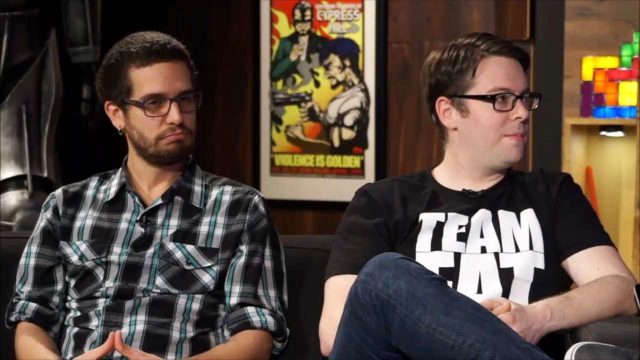
I agree that it really is a matter of scoring points. I’ve seen peers or people on social media who might chastise your tweets, but they don’t really have anything of substance to say about them. It’ll be something like “oh, another Colin Moriarty opinion”, but that doesn’t say anything. We’re literally critics, we should probably know how critiquing works [Laughs]. So I think it’s a lot of unfair flak.
Thanks, yeah I do too. But I can’t control it. It’s like when I reached out to Greg to try to mend stuff with him. I can’t control that he may not want to do that, I can only control my own attempt to reach a hand out or to attempt. I’m really trying to stay in that space of intention and control. Anything outside of that circle, I do worry about sometimes, but I ultimately can’t or shouldn’t. I’m not going to spin my wheels trying to make people who don’t like me, like me.
And I would imagine you’ve built up something of a resistance too. Anyone who’s seen an IGN comment section can probably assume that this isn’t the first time you’re dealing with this sort of thing.
It’s funny, because it was a little more impersonal at IGN. Being called a nazi or a racist or an alt-right or a bigot is a lot harder to deal with. It also makes you think, you know, what are the tangential and important people in your life thinking about that? What does one of my very good friends who I lived with for years, who is black, think about that? Would it give him pause, or would it make him want to defend me, or what? I think about that sometimes, and that’s the tough thing really. It’s not necessarily the words themselves, but it’s how those words affect other people, or the impression it gives other people. It’s one of those things I can’t control. I know how I treat the women in my life, I know how I treat people of color in my life, and transgender people in my life. I’ve treated everyone with a great deal of respect and kindness, and that’s why it’s the toughest thing, how personal it’s gotten.
Without any evidence, I’ve slowly seen, because I do read around sometimes, I’ve slowly seen people start to turn around and say “this is kind of a runaway train of libel”, but again, it doesn’t seem to affect the bottom line for me or the people who enjoy my content, so I try to stay in that positive space. I’m pretty predisposed to being in negative spaces, that’s just who I am. So it’s something I have to remind myself every day.
You know, I never really thought about it from that perspective of how other people you know might take that. That would be really difficult, definitely rough.
And it’s been rough from both sides too. Like, it’s tough for my family to see that stuff. No one wanted me to go on the offense more about what happened last year than my family. That might surprise a lot of people, but they were almost frustrated with the amount of restraint I showed in defending myself. If someone who doesn’t know who Colin Moriarty is and googles me and just sees a ton of controversial shit, it doesn’t really reflect what happened or who I am. It’s not fair, but life isn’t fair, so what am I supposed to do about it?
And with all due respect for most people out there, your name being googled will never really affect you if you work a normal job and live a normal life. I lead a pretty normal life too, but a lot of it hinges on this online shit that you can’t control, so it’s unfortunate. I wonder a lot, like in my building there’s a concierge who helps me with my mail and packages and stuff, and I wonder if she were to ever randomly google my name, what would she think of me? How would that contrast with her experiences with me? It’s a bit powerless, you know, but it’s just the way it goes. But I’m not just going to sit here and complain about it, life has been good to me.
And that’s a fantastic outlook to have after that much tribulation. That’s a good point though, no one is really googling Max the Accountant, but it would be a different story for you. I think you made the right call personally. It sounds like the kind of thing that subtly comes up in your mind now and then, that kind of nervousness.
Yeah, what can you do though right? I could let it consume me, but life is short.
A bit ago you mentioned Jason Schreier, going off that conversation, who do you think out there is doing games media “right”? Or at least in a good way, without clickbait or outrage and what not.
I don’t say it only because I have a strong allegiance to the site, but I think IGN, specifically because they have so much power and prestige and money, they can really try things and adapt to things, and hire and scale. And when I was there, things that we thought would be a really big deal for us ended up not being a big deal. For instance, we were really worried about wikia at one time.
Really? That’s a strange one.
Right? You know, the brilliance of Peer [Peer Schneider, founder of IGN], is that he made sure we could adapt and evolve, and fight fights that we didn’t need to fight to make sure we won. I do kind of take umbrage with the use of the word “clickbait”, not because you used it, but because some people use it as a misnomer. Clickbait is clicking on something and not getting what you were promised. It’s not necessarily writing something salacious or not worthy of a click or whatever, and then getting it. That’s just getting what you clicked on. I think IGN is really good at that, and I’m proud of what they’ve done to survive and adapt. And while smaller sites have kind of gone away, IGN’s still going strong. For the more purist gamer, I think Gamespot is also a really great place to be. Kotaku, I think, has some really great writers and some really terrible writers, so you kind of have to pick and choose what you’re looking for there.
But I’m also not really a great consumer of gaming content. I’ve never listened to a gaming podcast, even stuff I was on. With PS I Love You and Podcast Beyond, I think they were so good because Greg and I were doing the show that we wanted to be doing, and not the show we thought we should be doing. I’m not a prolific consumer to this day of gaming content. It dawned on me when I was making the Sidequest episode about underrated games. I was looking up things about I Am Setsuna, and I realized their new game was out and I didn’t even know it. That was a really striking thing to me, how I’m a little more out of the loop than I used to be. I’m much more interested in playing the games, and in seeing the stories behind the games, which I don’t think are told enough.
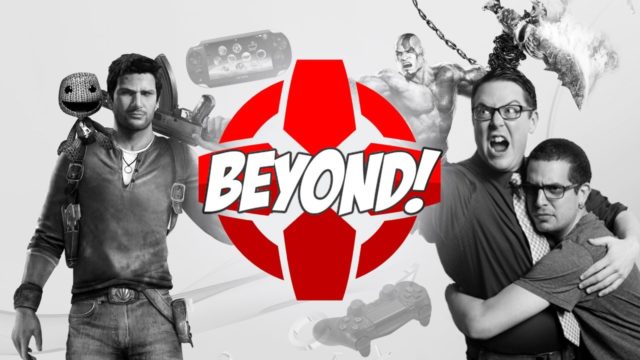
The podcast bit is especially interesting, because I find you always kind of pick up, even subconsciously, the stuff that you hear. It’s the same with writing reviews, where if it goes out later, you have to avoid any impressions on the game you’re reviewing before you finish. You accidentally pick up expectations, so by not hearing any podcasts, you’re really going in 100% with your own vision.
It’s an interesting experience to review a game like that too. When I reviewed The Last of Us, I gave it a 10, and it’s the only 10 I’ve ever given. It’s an interesting feeling to wonder if you’re going to be the outlier, since you’re all working in secret, reviewing the game. When you can’t even take a peek, it’s really a different experience. At IGN that was some of the most fun I’ve had, and some of the most nerve-wracking moments I had, waiting for reviews to publish. Everyone is the outlier at some point, or the odd man out once you review enough games. So it was interesting to be the Claxon call for sites, to see that you weren’t crazy. Then with the 3DS Castlevania, I ended up giving it a score that was way lower than most sites, which got me a lot of shit.
Yep, I experienced that this year with Metal Gear Survive. That was an interesting week for comments and the inbox. [Laughs] I would imagine that being the outlier happens a lot when you review a game of a genre you aren’t familiar with. Like, it’d be interesting to see a God of War review from someone who doesn’t play many Playstation games, rather than someone like me who plays a lot of Playstation exclusives. The outlier thing just fascinates me, because you never know what game it’ll be.
Yeah, and you don’t necessarily want to hit the pocket on every average. The average is the average of everyone’s opinion, so even your lowest or highest score contributes to that average. I don’t mean to make it sound like we need to be automatons.
For sure. I think those are the most interesting reviews to read. Like if someone gave God of War a 6, I would love to see what landed it a 6 compared to the higher scores it’s getting.
Yeah, and I think the 10’s are insane too. I’d like to read those reviews as well, because that, to me, is way too high a score. But again, it’s all subjective, and that’s kind of the beauty of it, right?
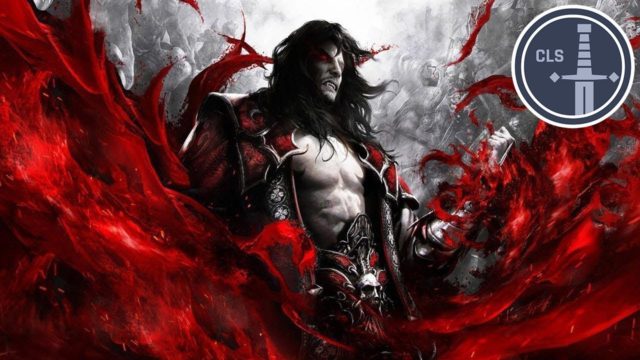
Yeah definitely! And this ties into being a different voice, but you’re an outspoken guy. When you’re passionate about something, you talk about it and you stick to your guns. Did this ever hinder you in your games media career? You mentioned in an episode of CLS: Sidequest that IGN was blacklisted by Konami at one time over Castlevania. Were there any situations like that where your opinions or work may have lead to ridiculous reactions like that?
Nothing that ridiculous. That was a story I was dying to tell for a long time, but I wanted to clear it with the heads at IGN first to make sure I wasn’t burning any bridges. But no, nothing crazy like that. Publishers and devs certainly have problems with some of the scores we give, but that doesn’t change anything. I didn’t do it a lot, but sometimes we would send publishers a preview of a review before it went live as a heads-up so they were prepared. We wouldn’t give a score, but something like “it’s not good”, just so they’re prepared. It doesn’t affect the score of a game, it’s more that on a person-to-person level, I’ve been working with this person on this game for six months and this is the final thing we’re doing, so I want to let them know that I don’t think the game is good before I let the audience know. And that was appreciated sometimes.
Sometimes publishers would remove ads for games, but that’s how it is. There’s such a separation between editorial and the rest of the site that it’s something editorial would never even know. We’d find out later, anecdotally. The beauty of working at IGN is they just let you say what you want to say. As long as you’re being reasonable and as long as you have evidence, they don’t really care. They always let me be me. No one ever tried to change a score. Sometimes we might have discussions over a score, like if the review doesn’t read like the given score at the end, which is why I fucking hate scores.
God yes, scores suck.
Yeah, and when we would talk, like with Last of Us, I brought some of the people I trusted into a conference room and we talked about it, and there was agreement. As far as op-eds and political stuff, it’s funny. People talk about Gamergate, which is something I don’t affiliate with, as kind of the beginning of this cognizance of politics in games, which is bullshit. I was writing a lot of stuff about politics in video games long before Gamergate was a thing. Again, they would just let me go. They give you enough rope to work with and enough rope to hang yourself, and I always really respected and appreciated that.
What always bothered me was the perception of, and I can’t speak for other outlets, but the perspective of IGN and its relationship with developers and publishers. People assume that money is exchanged, and all this untoward shit. I was there for a long time, and I never saw anything like that. Anything.
The one thing I remember being blown away by, and this is because it happened to every outlet, is from when Dante’s Inferno came out. IGN and everyone else was getting packages from EA celebrating the Seven Deadly Sins. So they’d send a basket of chocolates for gluttony, stuff like that. Not a big deal. But for greed, it was a cheque. Like, an actual cheque. And we were immediately like “are you fucking kidding me?” Like, I understand what they were trying to do, trying to be cute or whatever. But that was as crazy as it ever got. We called them and said “we’re throwing this cheque away, but as a heads up, you can’t do this. It creates the wrong impression”.
And I’m really proud that IGN, and I’m sure other websites, are always on the up-and-up when it comes to the silliness of being paid off or being in someone’s pockets. Like, dude, I started off at IGN making $40k a year, and could barely make ends meet. No one was giving us anything. So that always bothered me, and I’ll always defend that, because it’s so nonsensical.
I think in a lot of ways, it’s a matter of people wanting a game to have a specific score. Whether they’re passionate about it or want it to fail, I think they comfort themselves by assuming “IGN is wrong or paid off”, because how could this person ever possibly be wrong? Maybe like a bruised ego kind of thing.
Yep. Take it from me, everybody. I was there. Everything was on the table. The separation between sales and editorial was very strict. They were on the other side of the building, so when an ad got taken down or something, we wouldn’t even know.
We’d give a game a 9 and people would say “well you have ads for that game on your site”, and it’s just immediately “why the fuck would I know that?” I have no idea how we even make money.
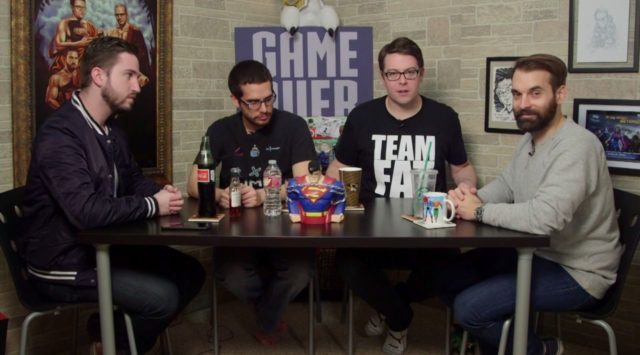
You mentioned earlier that you miss IGN, but wouldn’t necessarily want to go back. What is it that you miss, and what do you look back on fondly?
A lot of things. A lot of the people I worked with aren’t there anymore, but some still are. They tweeted out a picture of their cast now, and I had no idea who most of the people were, so it’s not like there’s that necessarily. But it was a wonderful way, and really a fortuitous way, to spend one’s twenties. I have a lot of great memories there, and without IGN and all that they did for me, I wouldn’t be here today. I’m a pretty reclusive dude, I’ve always been. Even at IGN, sometimes I would go into a conference room with my stuff just so I could work without being around anyone. [Laughs] Working on my own company appeals to that, but at the same time, you miss the camaraderie and structure. Since 2014, I haven’t known what it’s like to wake up to an alarm clock to go to work. You take for granted that there’s that bit of normalcy in your life, and that when you go home you can kind of turn it all off. Like now, I haven’t had a day off all year. And in a lot of ways, I’m strung out. I’m tired.
But really, I’m okay with failing. I’m okay with striking out. I just never want to think or know that I could have done more. Being at IGN and being able to divide that out with other people was nice. If something doesn’t get done at CLS, that’s all me. No one’s going to answer my e-mails, no one’s going to edit my videos, no one’s going to arrange my guests, no one’s going to fly to Philadelphia to see Dagan [Dagan Moriarty, Colin’s brother and co-host of CLS Knockback] to record Knockback. So I do miss that normalcy from IGN, and I look back at what you could call the “golden era” of Kinda Funny and I really loved that and enjoyed it.
The spare room!
Yeah, it was just different. When we moved to the studio, it felt different and I just kind of lost my love for it. I always have my love for IGN, and this sort of need to remain in its orbit in some way, because I’m so proud of what they’re doing, and so glad and lucky and happy to have been a part of them at all. So that why I’ll always miss it.
And I think that speaks volumes as to the outlet itself. You said earlier you’ll stand against the more slanderous claims of bribes and what not. I think the fact that you willingly left the company, but are still so proud and fond of it to defend it, really speaks volumes of IGN as a company. I think it’s really nice to hear, especially when the games media industry is in this kind of weird place. To see that kind of fondness is great.
I’m a loyal guy. If someone does right by me, I’m going to do right by them. I don’t think a lot of people would have noticed this, but when we left IGN on January 5th 2015 for Kinda Funny, Greg or Tim or someone made this image of the four of us that said “We Left IGN!” and it was a big splash thing of celebration and excitement, and I refused to post it on my social feed.
Because it seemed almost celebratory.
Yeah. I know for a fact that a lot of people at IGN didn’t take it well, and appreciated that I didn’t do it, but you know, I’m not excited that I’m leaving IGN. Leaving IGN was the hardest decision I ever made, I agonized over that decision. With time and distance you look back, and you don’t remember a lot of minutiae in the moment stuff like you asked me, it’s just distant. But I remember those meetings with the leadership. I remember the offers I had to stay. I remember the dinners. I remember being on Long Island with my family, being on the phone with Greg having to really be sold on it. I was the only one not sold on leaving.
And I’m glad that we did, but still. I’m a sports fan, so it’s like being a football player on one team for ten years, then leaving and going “Yes! I’m leaving the Jets!”, you know? It’s like, no, the Jets were a part of my life, and it’s a hard move. So I’ve always tried to be really respectful. A lot of the newer people there don’t like me for whatever reason, but the leadership there, I stay in contact with and I’m on good terms with. Peer’s going to be on Fireside Chats, which should show where we’re at, you know? It’s always been important to me to maintain that tether and that relationship. I think IGN deserves respect.
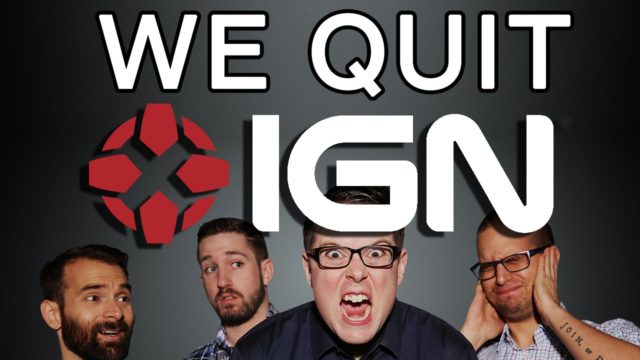
For sure. The recent string of Fireside Chats with IGN staff have been really interesting, because it gives you that side or that view of an opinion. When you read a review, you don’t know firsthand the person’s experience with the company or game or whatever. So I think that’s a really good way to put that out there, that IGN’s not just a social media account that puts out content. There are people there, if that makes sense.
It does make sense, but it’s also important to remember where you came from. I know what it’s like to be thrown away, you know? And it doesn’t feel good. When people forget what you had with them, or what you’ve done for them, or the kindness and help that you showed people purely for the sake of politics or for points, and I’ll never do that. I’m never going to say a bad word about IGN. I’m a loyal guy, and I know who buttered my bread. They never did anything to me that would make me feel otherwise.
And I think that’s a really good quality to have. Alright so don’t be modest on this one, because I really want to know this from your perspective. The reason for this series of interviews is that I’m talking to people who have been major figures in games media. I have my own opinions as to why these people, yourself included, are important, but I want to hear from your point of view, do you think you’ve made an impact or shaped the industry?
I think my impact was minimal in some respects. In my reviews and previews. Especially previews, I always hated previewing games.
God, I hate writing previews, it’s weird.
Previewing games is the worst. And it’s useless to consumers too since you’re seeing the best vertical slice of the game and almost lying to people. That’s just my opinion though, and certainly not one shared by everyone. In terms of news, breaking news, op-eds, podcasts, stuff like that, I think I had a huge impact. And I know that because I hear it from people every day. I’m so honored to hear that stuff too, to hear that people are digging up my old stuff and checking it out. I was the one that confirmed that PS4 controller picture from early 2013 was real, through my sources. It’s cool to kind of leave that legacy and impact in gaming.
I hope that I showed people that games are deeper than just regurgitated press releases and criticism. There’s interesting stories behind them, about the people that make them. And I tried to tell those stories, and to IGN’s credit, they let me tell those stories. And at Kinda Funny, my last year there I pitched that when everyone went to LA to cover E3, I’d stay behind to write deep-dives on everything there, but they weren’t interested in letting me do that. When people tell me I was their favorite game journalist, it’s really heartening. It’s really nice to hear. I try hard, so I hope that continues to resonate with folks. So in some ways, I don’t think I contributed anything, but in other ways I think I did a lot, especially with Podcast Beyond. So yeah, I think I try to stay modest, but I am proud of that, and I do think I inspired people to do the same thing, which is great.
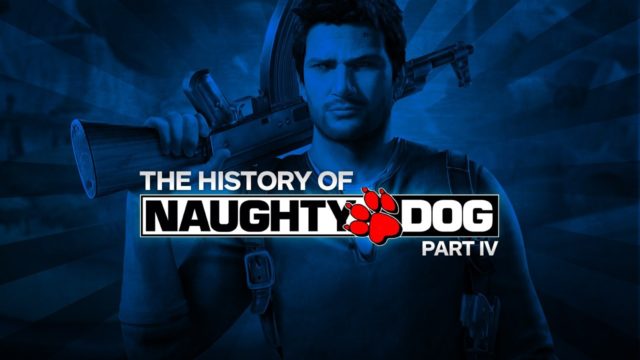
This is just from first-hand, but I specifically remember your “History of Naughty Dog” stuff and Greg’s “InFamous” stuff were the two things that made me really push to go into this. That’s why I’ve been kind of nervous during this interview [Laughs]. You’ve definitely had an effect in that way. Last year I went to my first E3 and PSX. I’m a Reviews Editor, and yesterday I got freelance work at a pretty big site. I wouldn’t be here without you and Greg’s work, so I do hope you guys take solace in that sort of thing, because it is crazy. Like, just being on the phone here is strange to me. So I think it’s important to acknowledge once in a while that you’ve done a lot of good.
It’s hard to acknowledge it when people try to tear you down sometimes, but you need to cut through it to see it’s a minority, and numbers speak for themselves. I’m happy and proud that that stuff lives on. So I just try to do my very best to earn the support I’ve been given. And if the time comes when people aren’t interested in me anymore, I can accept that. I did the absolute best I could, and had a good run. I found some financial security in my life. There’s very little for me to complain about. And again, I can’t help if some people let me live in their heads, I can’t control that.
I can understand that. I think in a lot of ways, it’s a lot easier on social media to say something harsh than the opposite. I’m glad that you get to see the other side as well sometimes, because I imagine it’s really kind of draining to get the worst from people so often.
Thank you, yeah I do. And I think it’s overstated sometimes, because I really do get a lot of positive stuff as well. But I’ve been to ten E3s, Gamescoms, Tokyo Game Shows, PAX, Comic Cons, and no one ever said negative things to my face. So it’s easy to throw stones, but these are the same people who, a few years ago, were shaking my hand and asking for a job. But I’m too nice to blow those people up, but I know how fake it can be. I could screencap people and make fun of people and get likes, but it wouldn’t make me feel good. Being positive makes me feel far better, so that’s what I try to do.
That’s the best way to be, I think. I think that says a lot more about you than what people may say on social media.
Thank you so much.
Not at all! So final question, for people who may want to one day work at IGN or Gamespot, what advice do you have?
I know this might be hard to listen to, but the best advice I can give is to not necessarily aim for that. If you end up there, that’s great, but people have way more power themselves than that. Let me use another sports reference: I’m a football fan. A bunch of quarterbacks went in the draft. They talk about downsides and upsides. Some players might have lower downsides and higher upsides, so you can take the risk and get people with way bigger mountains to climb, but they could also plummet down to nothing. And so, if you want to work at IGN that’s fine, but I love that people are taking it upon themselves to start YouTube channels and Twitch channels.
And once in a while, someone becomes huge, like that Ninja guy on Twitch. He was streaming to 600,000 people recently. And IGN and Gamespot, with all due respect, are never going to get those numbers outside of maybe E3, right? Approach at a different angle. If you want to end up at IGN, work on independent content that you can show them. It’s kind of like filling a barrel with content for yourself that you can show off, but you can also use on your own. I think the independent scene is way more vibrant, and there’s more opportunity and more competition there than ever. Then if the big sites pick you up, power to you. But independent is the way to go I think. I wouldn’t have said that even a couple years ago, but times are always changing.
That’s true, really. A couple weeks ago, I had never heard of Ninja. Now, he’s everywhere. It’s really crazy to think about how it’s thriving.
Look at it this way, it’s musical chairs, dude. Then there’s fewer chairs and the music gets faster. But on the flip side, there’s an infinite number of chairs, and the music never stops playing. You just need to get people to pay attention to you and what you do. I had a huge leg up working at IGN, and I don’t know that I’d have any of these opportunities without them. But you have to look at it through the lens of finding your own happiness. And if you want to work at IGN, live in San Francisco, and make very little money, more power to you. I just think it’s far more exciting that opportunities exist now that didn’t exist when I started. YouTube literally didn’t exist when I started, and Twitch was a ways off. Don’t only aim for the apex of the structure, find layers to explore and climb.
And the other thing too, to be totally honest, you’re probably not going to make it. And I always was really honest with people. At IGN, we would get tens of thousands of applications for jobs. It took Greg 13 applications to get an interview. The Greg Millers of the world weren’t able to get in until someone picked up that piece of paper from a desk. So is it more likely that you’ll start a YouTube channel that’s successful, or Twitch? I think mathematically, that’s more likely, but I don’t know. Maybe I’m wrong.
That’s insane. I didn’t know Greg applied 13 times, that’s just crazy to me.
And I don’t mean to take winds out of people’s sails, but aim realistically. If you want to know what to major in in college, don’t do fucking history like I did. Do math or something. Make a lot of money, have a good life.
Shit, I’m with you there. I’m an English major, yeesh.
We need English majors! But I always say if you have a left brain, go into math. Go be an engineer or a scientist. Make money, change the world.
I think it’s an important thing to hear. And if hearing that you won’t make it is all it takes to make you quit, I don’t think you were ever serious enough to go for it anyway.
Brilliantly put, that’s totally right. It’s the same thing with sports. I played competitive hockey as a kid, I wanted to be in the NHL, but I knew I wouldn’t. But that doesn’t mean you can’t have fun or you can’t try. There was a quarterback in the draft the other day that didn’t even receive any division one offers, but he got drafted in the first round. Good things happen if you want it, and I believe you can get it if you want it, but it depends on how much you want it.
For sure. I think if you don’t have a constant burning fire to do this, you aren’t going to make it.
Yeah dude. I worked 70 hour weeks at IGN, and if that’s what you want, more power to you. But I’d rather see people working on medicine, working 40-50 hour weeks, making money, and having time to themselves. But it’s not for everybody. I just try to be realistic. I’d rather someone be angry and say “that’s such a fucking downer”, than someone come up to me ten years later and say “I did everything you said and worked hard and failed and now I’m broke”. I’d rather take the hate upfront than from the back. [Laughs]
That makes complete sense. It’s not an easy pill to swallow, but you need to be told it.
And look at it this way. I was a freelancer for five years and an intern for two, and when I was going to grad school, I didn’t think it was possible. I just don’t want people to be sidetracked, especially since games can get ruined for you, like they were for me for a while.
If you want to see what Colin’s cooking up now, check out the Colin’s Last Stand YouTube channel and Patreon page, where he talks about politics, video games, and everything else.

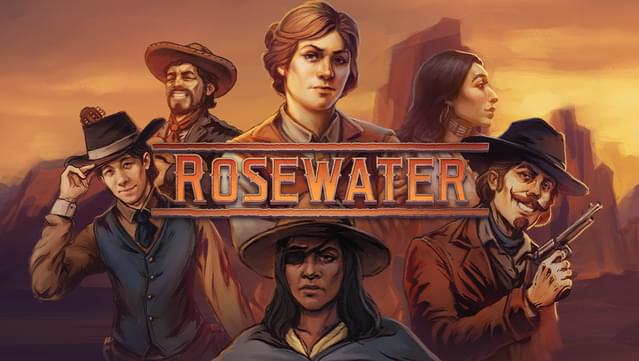
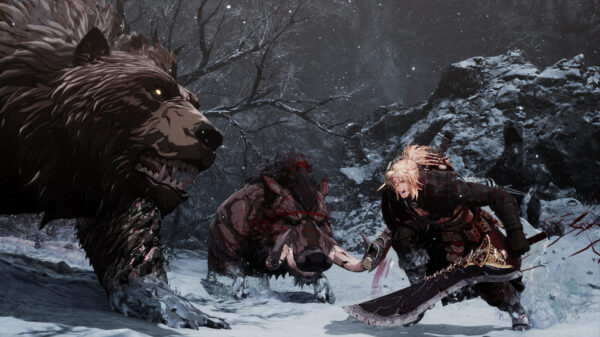
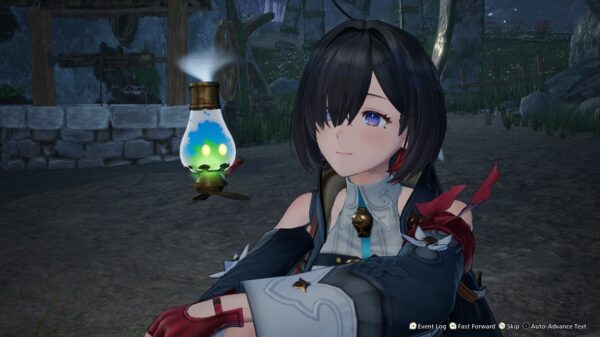



























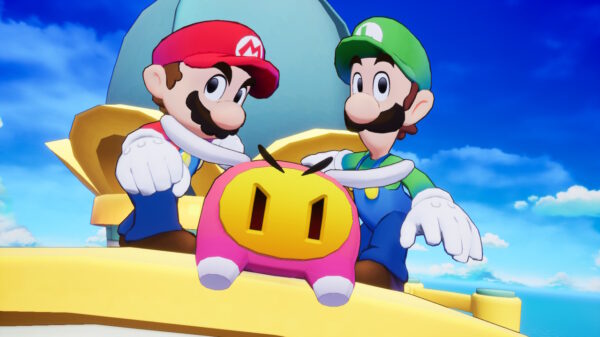





















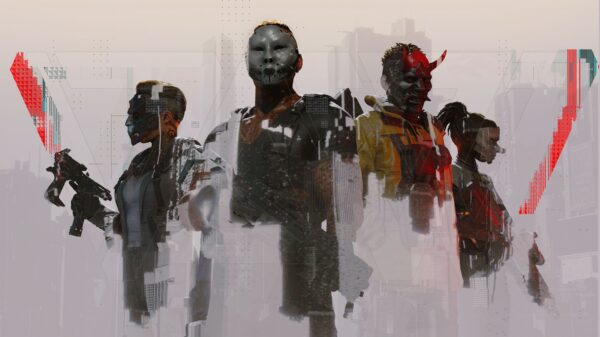
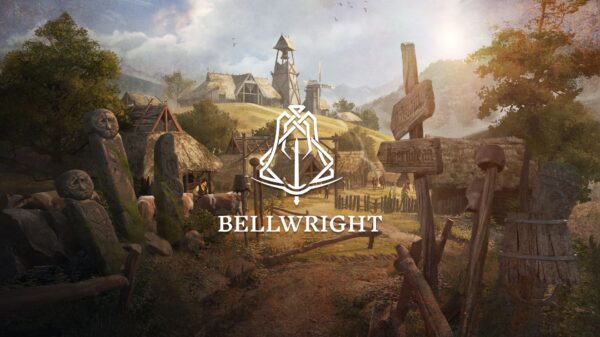
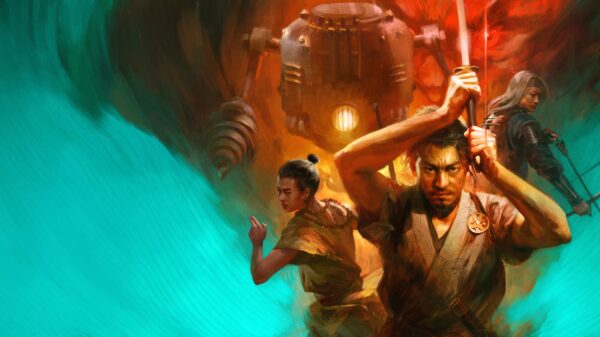
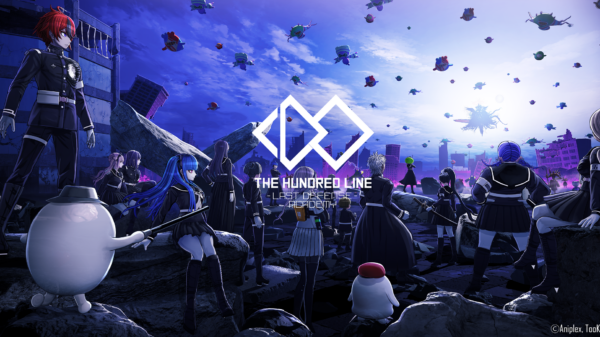

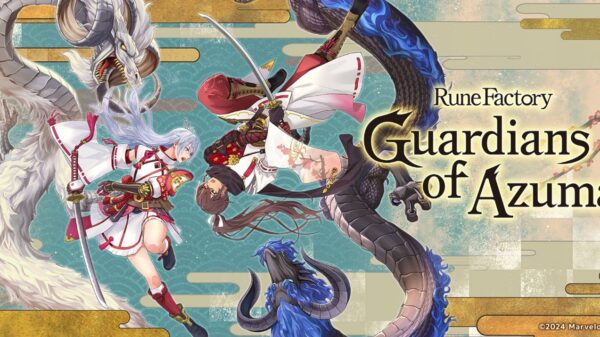
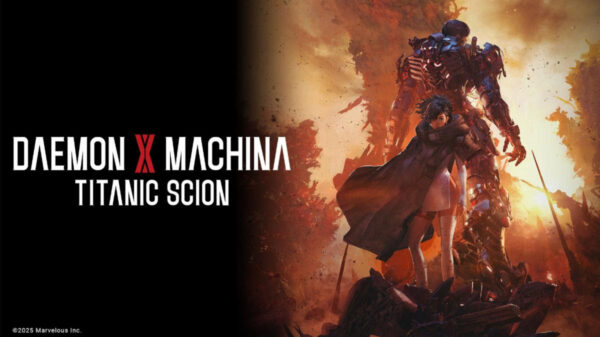

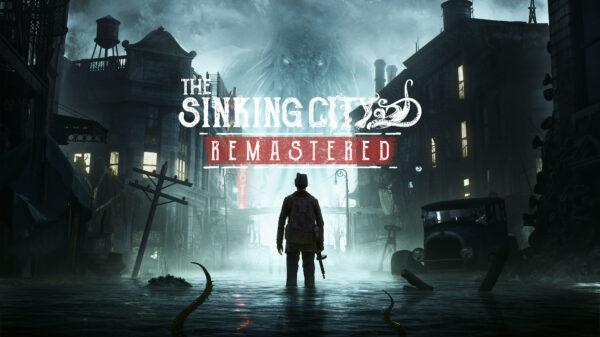
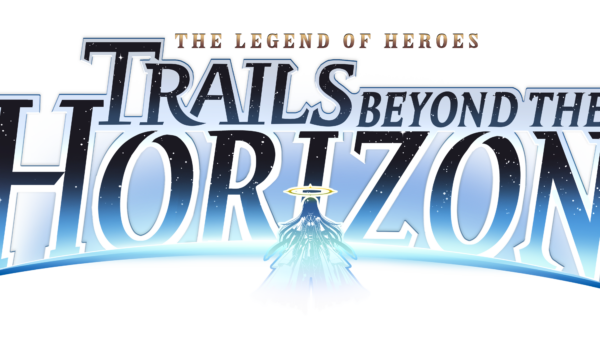
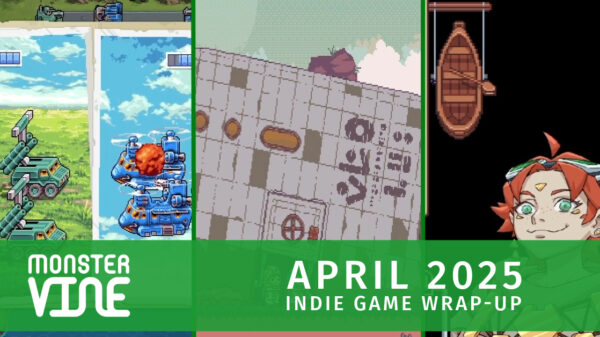
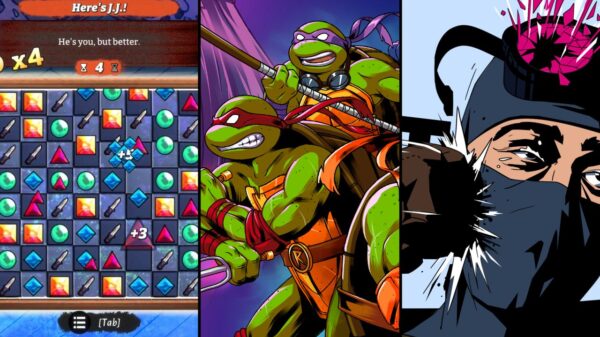
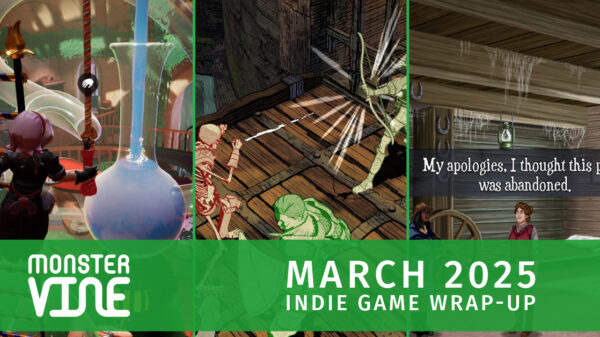


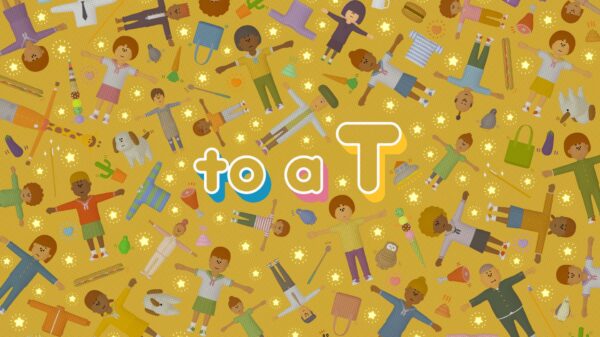
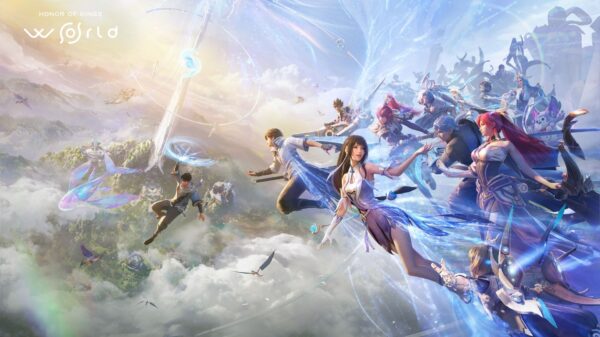



























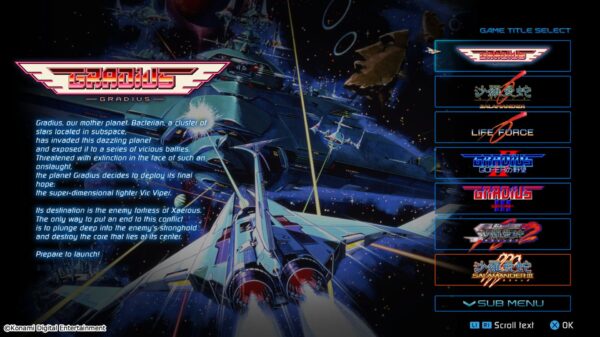

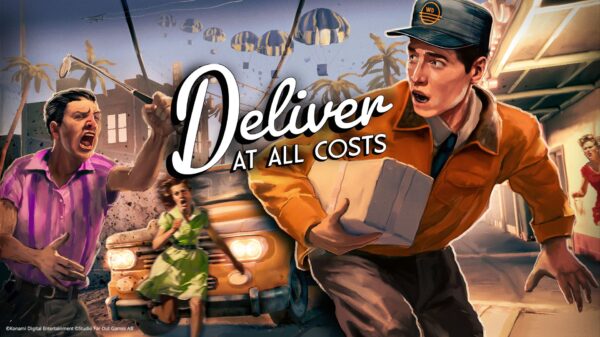

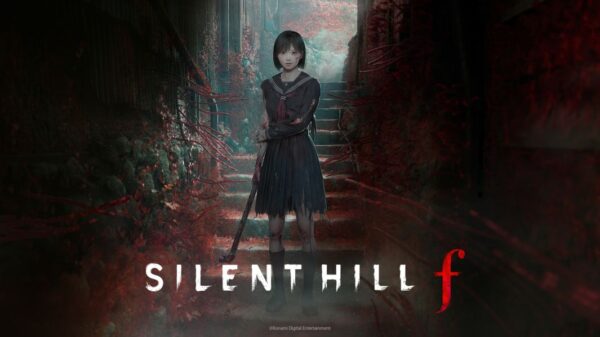

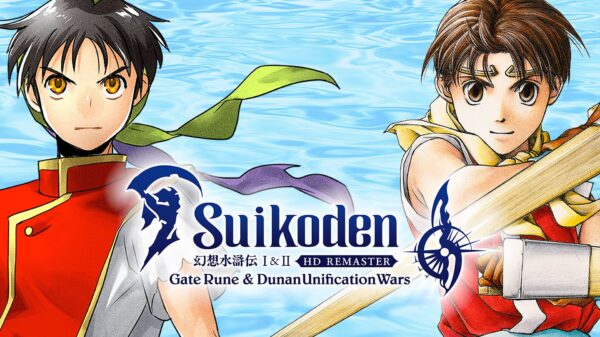

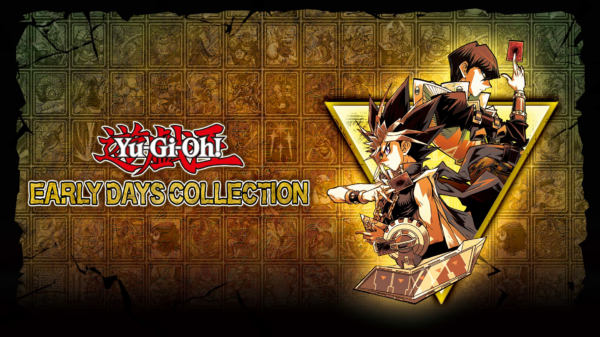
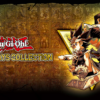
Jake
May 8, 2018 at 12:58 am
Correction, they did not create Podcast Beyond. They joined the podcast at different times.